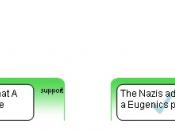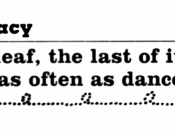There are several important components to critical thinking. One aspect of particular significance is logical correctness. In order to be a more effective in decision making, one should be able to recognize and avoid logical fallacies whenever possible According to Bassham (2002), a fallacy is "an argument that contains a mistake in reasoning.
This paper will discuss three logical fallacies and their impact to critical thinking and decision making. The fallacies that will be discussed are:
First, Appeal to Pity fallacy, Second, "Ad Hominem" or personal attack fallacy, and third the false alternatives or false dilemma fallacy. The first is an appeal to emotion fallacy. The personal attack fallacy is of relevance. And the third is a fallacy of insufficient evidence.
Appeal to Pity Fallacy
The first discussed fallacy is the Appeal to Pity fallacy. The Nizcor Project website (2005) defines Appeal to Pity as "a fallacy in which a person substitutes a claim intended to create pity for evidence in an argument."
In other words, occurs when someone tries to win support for his/her argument or idea by exploiting the other person's feelings, pity, or guilt.
In a work environment, one can find this type of fallacy when in a work interview, the person who wants the job says something like "I will do great in that position, I really need this job. I have three children and one is sick, I have to take him to the doctor every week." Even though this person may be telling the true, this line of reasoning is incorrect. To prove a statement "do great in that position" he needs to use correct thinking, not a fallacy directed to manipulate other people's feelings.
Other good examples that I found of "The appeal to pity" fallacy are:
Wikipedia (2005) "I hope...


